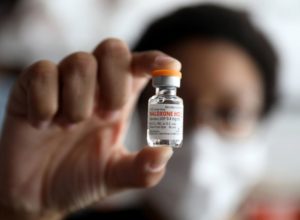
The federal government’s Substance Abuse and Mental Health Services Administration (SAMHSA) described the issue of uncontrolled opioid use in the Latino community as a matter of urgency in a special report released in 2020.
With the COVID pandemic, the confinement, depression, and financial stress that it has caused, opioid use in the country has escalated. According to a report by the Center for Disease Control and Prevention, overdose deaths have increased by a historic 16.9% nationally.
In Maryland, the Opioid Operational Command Center reported that from January to September 2020, deaths related to opioid use increased by 16% among whites, and 13% among Blacks while Latinos saw an increase of 27.3%.
Diego, a 49-year-old man, was first introduced to narcotics when he was just 12-years old. By the time he was 17, he was not only using drugs but trafficking them as well. He said drugs plunged him into a spiral of addiction damaging his family relationships and landing him in jail multiple times.
Orlando Colon, who directs Casa Esperanza’s residential recovery program for men stated, “The cases we are getting during the pandemic have been very high, double [the usual]. Unfortunately, we are now full. When one of the 50 beds we have is emptied, we call the next one on the list.” Colon also said that it is even more difficult for immigrants especially those who lack legal status because they are sometimes too afraid to get help. The inability to access the necessary help in a timely manner contributes to the aggravating addiction problems and it increases the chances of death from overdoses. Among immigrants, the trauma of migration, the fear of deportation, and the lack of an extended family network are added factors. According to a CDC report, Latino adults have experienced more depression and suicidal thoughts than other groups during the pandemic.
Dr. Lisa Fortuna, head of the department of psychiatry at San Francisco General Hospital, expressed that in her experience treating Latino patients with depression, anxiety, and addiction, a stigma persists around seeking help. “Many do not publicly acknowledge that they suffer from depression or anxiety, for fear of being called crazy or weak, and they acknowledge even less that they are consuming alcohol or drugs” she said.
Diego hopes to work as a mechanic once he recovers, “I see a good future for me. I have to work on my recovery, deal with my addiction. That is the primary thing is my life. I know that in this program, they are going to help me a lot. They are already doing it” he said.

Recent Comments